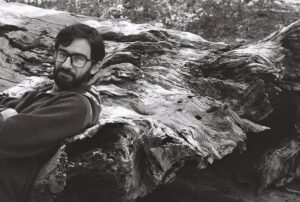I grew up in Cordoba, Argentina, during a time of devastating economic crisis. This experience marked me and it informed my interest to study how Latin American societies relate to global capitalism. I was very passionate about political theory, philosophy, and economics. Luckily, my undergraduate studies (Licenciatura en Ciencias Politicas) provided me with a great foundation in those fields. When I migrated to the U.S., I struggled to navigate the complexities of the immigration system while also pursuing an academic career. Although I wanted to start this journey with a MA degree in a U.S. university, my status as a non-U.S. citizen and the weakness of the Argentine peso made student loans prohibitively expensive. Fortunately, after working as a visiting scholar for two years, I was able to obtain a full scholarship at Georgetown University for their MA in Latin American Studies.

The History Department at the University of California-Irvine trained me as a social historian with a focus on the environment. I learned from Latin American historians who built a strong historiographic tradition focused on the struggles of Indigenous communities and the working class. I also received great inspiration from the field of environmental history, which flourished in the U.S. but is now emerging in full force globally. My dissertation, which is the result of these two influences, examined a series of environmental conflicts connected to the rise of the copper industry in Peru.
While in California, I have worked closely with local groups advocating for soil remediation and environmental justice. This activist work has also been an opportunity to collaborate with environmental scientists, first as a NSF’s Ridge to Reef Fellow and then as a Mellon Humanities Faculty Fellow.
I enjoy baking, gardening, and photography.